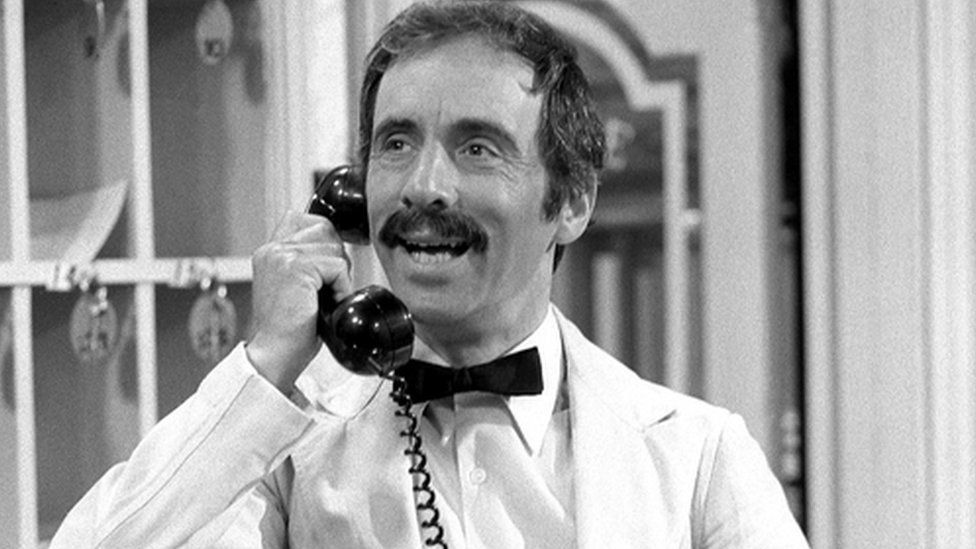Andrew Sachs and the conflict over his dementia 'battle'
- Published

People are mourning much-loved Fawlty Towers actor Andrew Sachs but many are unhappy with the way his death is being covered by the media.
It was widely reported that Sachs, who played hapless Spanish waiter Manuel, died after a "battle with dementia", or even after "losing" that battle.
But wait.
Is that the right way to describe what happened?
Many on Twitter do not like the implication that dementia is a condition that someone could "fight" and "win".
Do words like these put the blame on the sufferer for "losing" the "battle"?
Some people are also pointing out that dementia is not a simple disease, but a complex syndrome with a number of related symptoms.
There are around 800,000 people in the UK with dementia, according to the Alzheimer's Society.
Others say words such as "battle" are also wrongly applied to diseases like cancer.
This feeds into a wider debate about the use of military language in medicine, and in science in general.
Is it right to talk about a "war" on cancer, or the "fight" against "invasive species" - or even to describe superbugs as a "sophisticated army with astonishing weapons"?
These kind of words could make you think about illness in a very specific way.
Some scientists worry that the use of war metaphors damages science, as it moves them away from being objective.
This kind of language could also change behaviour. Talking about viruses and bacteria as the "enemy" may mean that scientists focus on destroying them, rather than looking for alternative solutions, says Brigitte Nerlich, professor of science, language and society at the University of Nottingham.
But perhaps the worst thing about the language of war in medicine is that it could put a lot of pressure on a patient to "fight" the battle, and then to blame themselves if they lose.
By Nathan Williams, UGC and Social News team
- Published2 December 2016
- Published2 December 2016
- Published1 December 2016
- Published19 February 2014